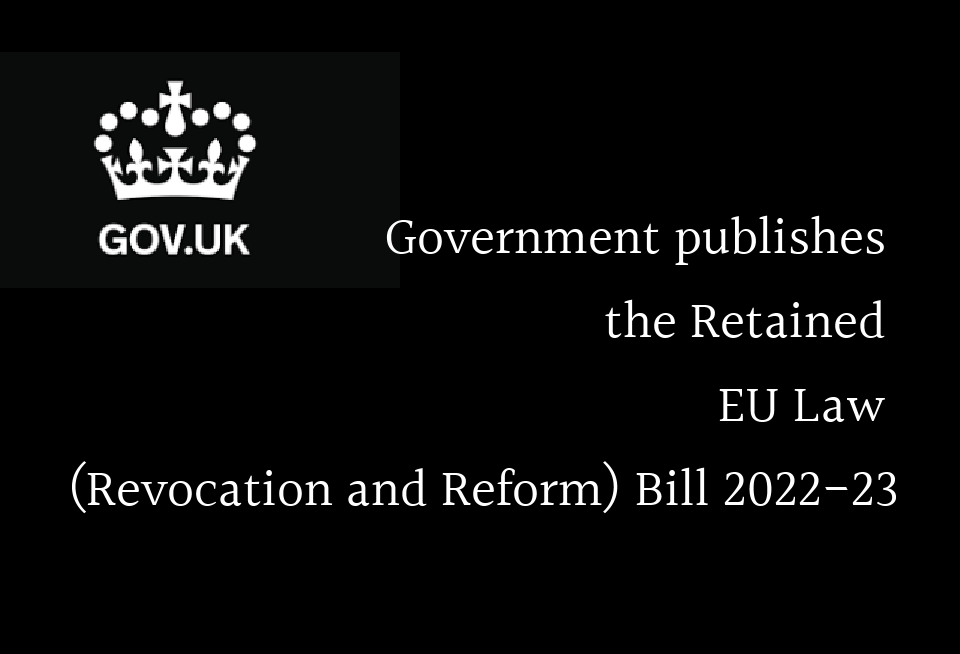Employment Law will be changed radically by 2023 as the Government publishes the Retained EU Law (Revocation and Reform) Bill 2022-23
Brexit has left us in the U.K. with various ‘retained EU law’, originally derived from the EU it currently remains in place due to the European Union (Withdrawal) Act 2018.
As such, the UK Government want to consider all the regulations and laws, sifting what they keep, amend or remove. This will create a solid UK only set of employment regulations. The Government has a plan for this by way of the Retained EU Law (Revocation and Reform) Bill 2022-23 (the “Bill”). If and when this is implemented this could lead to significant changes to employment rights and obligations and employers and employees will need to be prepared for contract and policy changes.
The Bill will ‘highlight areas of law currently in play and by 31 December 2023, unless preserved this will be withdrawn. This revocation date may be extended to 23 June 2026 at the latest. This means equivalent laws need to be implemented as EU retained law will be scrapped automatically at this point.
Under the Bill the Government could:
- Amend and replace or Restate/adopt (preserving current laws) or Revoke
- EU retained law currently has priority over conflicting UK employment law passed before the end of the Brexit transition period. The Bill reverses this order, giving domestic law priority over retained EU law.
- Abolition of general principles of EU law (UK courts have had to reconcile and uphold what aspects of law are valid – where EU and UK principles are conflicting. This is currently to prefer retained general principles of EU law, but this bill seeks to give UK law precedents
- Renaming of Retained EU law as ‘assimilated law’ this is to reflect that EU interpretive features no longer apply.
The government state this approach is to make ‘the UK ‘the best regulated economy in the world as set out in the Benefits of Brexit document published in January 2022
What does all this mean to UK Employers?
Substantial areas may change such as the Working Time Regulations 1998 which cover holiday entitlement, the Part-Time Workers (Prevention of Less Favourable Treatment) Regulations 2000, and TUPE (insofar as this implements EU law), amongst others. How they will look after the bill is largely unknown so employers need to watch for the proposals and enactments as contracts, staff policies and handbooks, as well as statutory practices, may change / need to be changed
If employers have European and UK staff it maybe they now need to consider separate proposals for policies/practices and contracts – whilst ensuring continuation of terms , non-discriminatory approaches and preparation and advice will be essential as this could be a significant change for many

